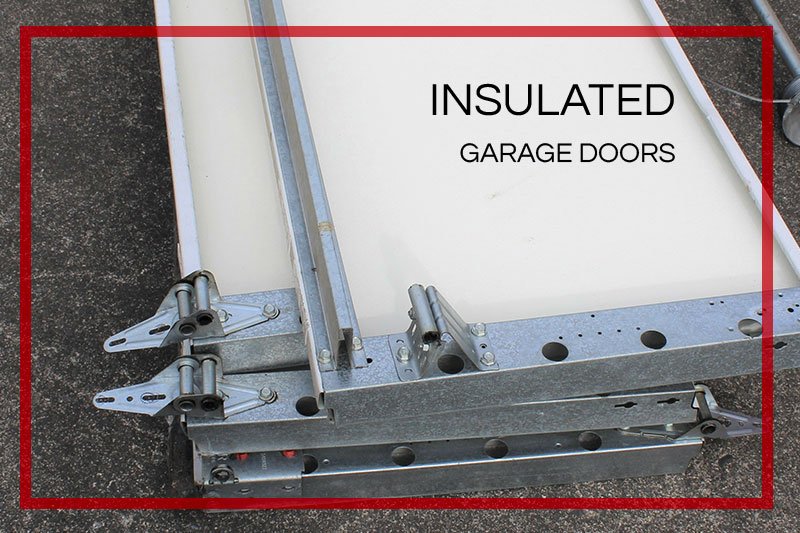When the mercury drops, you probably reach for a jacket on your way out the door. Why? Because the insulation given by down or fleece keeps you warm in cooler temperatures. Insulated garage doors act like a winter jacket for your garage, keeping the temps stabilized and your belongings protected. Want to know what level of insulation is right for your home? Read on!
Why Insulated Garage Doors Are Important
As we mentioned, insulated garage doors act as a barrier of protection against the elements. On average, we open and close our garage doors three to five times a day which comes to about 1,500 times a year. When these doors are the primary entrance into the home, keeping the temperature regulated there can positively affect the rest of your house.
Now, for a little science lesson. A garage’s R-value is the “measure of thermal resistance to heat flow.” When shopping for a door, the higher the R-value, the better insulated the door. And, for a region with low temperatures like Central Oregon, paying attention to this number can save you money in the long run.
Different Levels of Insulation
If you’re looking for a residential garage door, you might have been struck by the number of variables per door: color, materials, window placement and shape, texture, and insulation. We’d argue the most important of these is the R-value because it will directly impact the functionality of your door. In addition to keeping the temperature regulated in the garage (and your home), insulated garage doors prevent leakage, are more resistant to dents, and reduce street noise.
So, what decides the R-value of a door? Mainly the materials used. The insulation itself is typically made of either polyurethane or polystyrene. The former is the most common and offers the highest R-value range between 9 and 16.22. Doors with this insulation use a foamed-in-place system that increases the efficiency and dampens sound better than its polystyrene counterparts. However, polystyrene is less expensive and can offer good insulation value for those with a lower budget.
The material of the door itself matters, too. Steel doors offer the most protection against harsh weather conditions, followed by steel-backed fiberglass. In general, the more windows on a door, the less insulated the door will be.
What Level Is Right For You?
That depends on where you live and what your overall garage use is. If you live in a more temperate area, the R-value maybe isn’t as important as the aesthetics of the door. In Central Oregon, we recommend looking for doors with a nine-plus R-value to keep heating costs low and your items protected.
It also helps to consider if you use your garage as a workspace, keep pets in the garage, or plan to sell your home within the next ten years. All of these things may make investing in insulated garage doors a necessity.
Our Top High-Efficiency Door Recommendations
The team at Central Oregon Garage Door is here to answer any questions you might have when purchasing a new residential garage door. These are our top insulated pics for our Central Oregon customers.
CHI 2717 Sterling: You can’t go wrong with an R-value of 15.07 and its sleek, modern look.
CHI 5602 Shoreline: The 17.57 R-value is made possible by 27 gauge galvanized steel — and they look just as good as they perform.
WD 8500: We consider these the best-insulated doors on the market (R-value 16.22) with various design options and finishes.
WD 6600: With 11 different carriage house designs and an R-value of 12.12, these doors are where efficiency meets durability.
In Central Oregon, Insulated Garage Doors Are a Must
We live in a beautiful area with very distinct seasons and temperature swings. Insulated garage doors help our customers keep their items protected from the elements, lower heating costs, and offer incredible curb appeal. Let our team help you choose the right level for your home!
